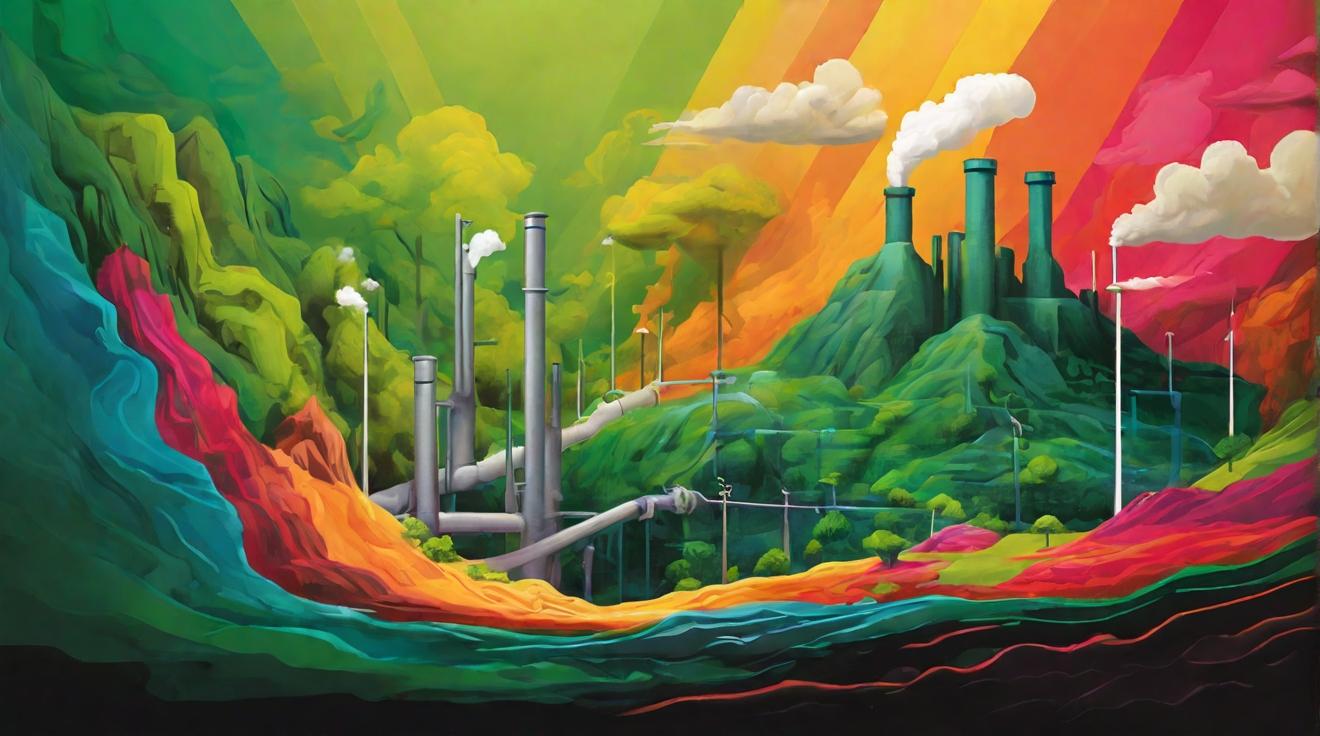West Virginia Passes Bill Granting State Authority to Regulate Carbon Sequestration
The West Virginia Senate has passed House Bill 5045, which gives the state the power to enforce Environmental Protection Agency (EPA) rules in relation to carbon sequestration. The bill is part of an attempt to gain approval from the EPA for West Virginia to regulate the new green technology known as carbon capture. Proponents of the bill argue that it will allow the state to bypass lengthy EPA permit wait times and get the technology up and running quickly. However, concerns have been raised about the risks of underground carbon storage leaking and potentially contaminating drinkable groundwater supplies.
West Virginia Aims to Lead in Carbon Sequestration Technology
West Virginia aims to be at the forefront of the new technology of carbon sequestration. Lead sponsor of House Bill 5045, Randy Smith, believes that the state can be a leader in developing rules and regulations for this technology. Smith argues that the bill is a proactive measure to ensure that West Virginia can effectively manage the technology and prevent potential disasters. However, critics argue that the new technology is just perpetuating the use of fossil fuels.
Carbon Sequestration: A Possible Solution to the Climate Crisis
Carbon sequestration, the process of removing carbon dioxide from the air and storing it, has the potential to address the excess CO2 in the atmosphere that is contributing to the climate crisis. Trees naturally sequester carbon through their absorption process. Meanwhile, new green technology called carbon capture can extract CO2 released during the burning of greenhouse gases and pump it into the ground. This technology, although promising, also raises concerns about the risks of underground carbon storage leaking and contaminating groundwater supplies.
Potential Risks of Underground Carbon Storage
One of the main concerns surrounding the implementation of carbon sequestration technology is the potential for leaks in underground carbon storage. Critics argue that this could lead to contamination of drinkable groundwater supplies. To address these concerns, proponents of the technology emphasize the importance of proper management and adherence to strict regulations. Specialty wells will be utilized to ensure that leaks do not occur, preventing disasters associated with mismanagement of industrial activities in the state.
Opposition to Carbon Sequestration Technology
Opponents of carbon sequestration technology argue that it perpetuates the use of fossil fuels rather than promoting alternative, renewable energy sources. They believe that investing in technologies that reduce reliance on fossil fuels would be a more effective solution to the climate crisis. While the bill granting West Virginia the authority to regulate carbon sequestration has passed both chambers, it still requires approval from the House to confirm the changes made in the Senate.
West Virginia Considers Legislation Against Left Lane Cruising
In addition to the bill on carbon sequestration, another notable legislation being considered in West Virginia is a law that would prohibit drivers from cruising in the left lane unless they are passing or under specific circumstances. The law aims to improve traffic flow and safety by discouraging unnecessary use of the left lane. It would require drivers to move into the right lane when not actively passing other vehicles.
Analyst comment
1. Neutral news: West Virginia Passes Bill Granting State Authority to Regulate Carbon Sequestration. Market impact: The market for carbon sequestration technology may experience growth as West Virginia seeks to establish regulations and gain approval from the EPA, but concerns about potential groundwater contamination may limit market development.
2. Positive news: West Virginia Aims to Lead in Carbon Sequestration Technology. Market impact: West Virginia’s proactive approach to developing regulations for carbon sequestration technology could position the state as a leader in the industry. This may attract investment and drive market growth, but critics’ concerns about perpetuating fossil fuel use may impact public perception.
3. Positive news: Carbon Sequestration: A Possible Solution to the Climate Crisis. Market impact: The potential of carbon sequestration technology to address climate change may generate increased demand and investment in the industry. However, concerns about potential leaks and contamination may impede market growth.
4. Negative news: Potential Risks of Underground Carbon Storage. Market impact: Concerns about leaks in underground carbon storage may lead to increased scrutiny and regulatory requirements for the carbon sequestration industry. The need for proper management and adherence to regulations may limit market expansion.
5. Negative news: Opposition to Carbon Sequestration Technology. Market impact: The opposition’s arguments against carbon sequestration technology may impact public perception and influence policy decisions. This could hinder market growth and shift focus towards alternative renewable energy sources.
6. Neutral news: West Virginia Considers Legislation Against Left Lane Cruising. Market impact: This news is unrelated to the carbon sequestration market and does not directly impact it.













